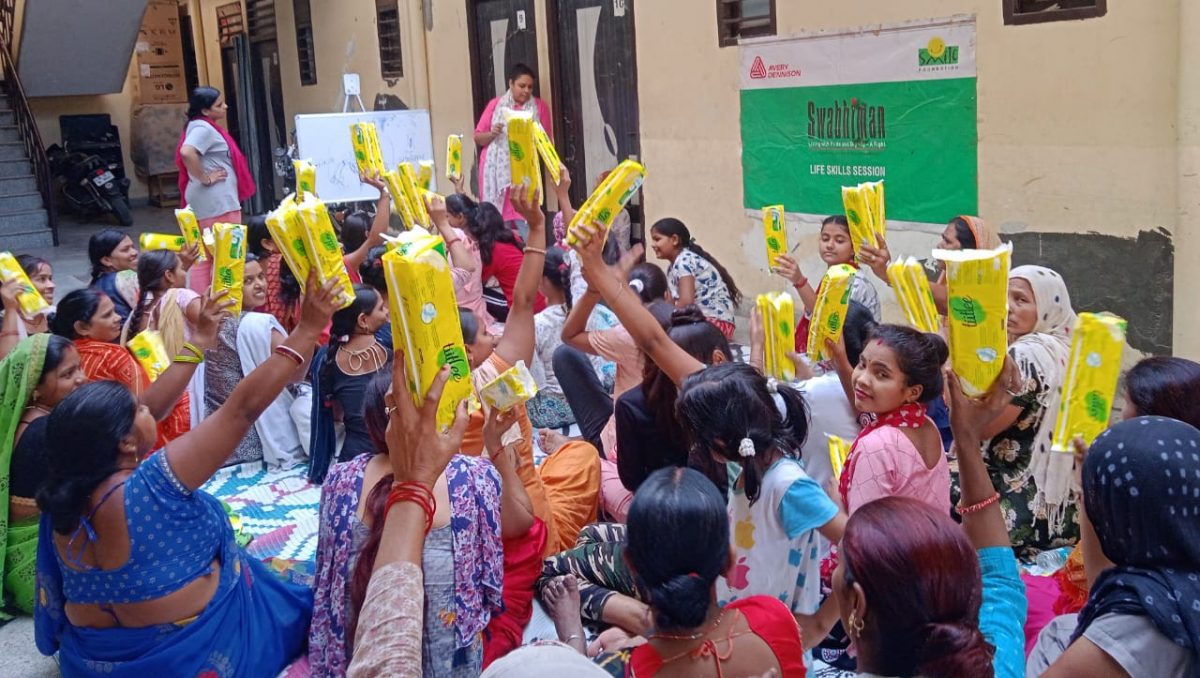Adolescence is a phase of significant physiological, psychological, and social transformation, bridging the gap between childhood and adulthood. During this crucial period, many young girls in India encounter menstrual difficulties, making reproductive health education essential. Unfortunately, a majority of teenage girls in India lack adequate knowledge about menstruation, reproduction, and sexuality, largely due to sociocultural barriers and prevailing taboos.
Menstruation remains a taboo topic in Indian society, often associated with myths and prohibitions. The cultural perception of menstruation as a curse or illness contributes to the lack of open discussions about menstruation. This inhibits young girls’ ability to understand their bodies and cope with the changes during menstruation effectively. As a result, they might develop feelings of shame and discomfort during their menstrual cycles, impacting their overall well-being.
Challenges in Menstrual Hygiene Management
The lack of proper menstrual hygiene management can lead to adverse health consequences for adolescent girls. Poor personal cleanliness and unhygienic sanitary conditions increase the risk of reproductive tract infections (RTIs) and gynecological issues. In resource-poor environments, where access to basic facilities such as water, bathrooms, and privacy is limited, maintaining adequate hygiene becomes challenging.
Moreover, the affordability and availability of menstrual hygiene products pose significant obstacles. Many young girls cannot afford sanitary pads, leading them to rely on unhygienic alternatives, such as old cloth or rags, further exacerbating the risk of infections. Providing affordable and accessible sanitary pads is essential to ensure menstrual hygiene for all girls.
To bridge the gap in menstrual hygiene knowledge and practices, there is a pressing need for comprehensive menstrual hygiene education programs targeted at adolescent girls in India. Such programs must be implemented at multiple levels, including national, state, and community levels, to create a conducive environment for open discussions and positive change. Our women empowerment program, Swabhiman constitutes of menstrual hygiene awareness sessions and sanitary napkins distribution among adolescent girls and women of underserved families.
Girls who in the past talked about menstruation in hushed voices, now have the confidence to talk in detail about it in school assemblies and home conversations. This created a ripple effect with many adolescent girls joining the sessions influenced by the learnings of their school peers and friends from the community.
Educational Initiatives and Sensitization
At the school level, integrating menstrual hygiene education into the curriculum is crucial. Comprehensive modules covering various aspects of menstruation, including biology, hygiene practices, myths debunking, and coping with menstrual discomfort, should be developed and implemented. These initiatives equip girls with essential knowledge and foster an environment where menstruation is normalized and free from stigma.
Establishing dedicated “adolescent gynecological clinics” is imperative. These clinics will focus on addressing menstrual morbidities, offering timely diagnosis and treatment for menstrual disorders and related issues. Adolescent gynecology should receive more attention from researchers, clinicians, and society to improve the overall health and well-being of young girls.
Role of Media and Community in Menstrual Hygiene Health Education
The media, including print and social media, can play a vital role in breaking the menstrual taboo and promoting menstrual hygiene education. By featuring positive narratives, success stories, and factual information about menstruation, media can contribute to changing societal attitudes and promoting open discussions about menstruation.
Additionally, community leaders, teachers, self-help groups, and families must collaborate positively to support women and adolescent girls. By challenging harmful taboos and beliefs and encouraging open communication, families can create a supportive environment for adolescent girls to manage their menstrual health confidently.
The #YesIBleed campaign, launched by the Ministry of Women and Child Development, aims to normalize conversations about menstruation and combat the stigma surrounding it. The campaign uses social media platforms to spread awareness, engage with young girls, and encourage open discussions about menstrual health.
Government Initiatives to Promote Menstrual Hygiene Health Education
To encourage and promote menstrual hygiene practices, the Government of India (GoI) has launched several programs and schemes aimed at providing access to menstrual hygiene products and education. One of the significant initiatives is the National Menstrual Hygiene Scheme (NMHS), which emphasizes the importance of menstrual hygiene education and awareness among young girls.
Under NMHS, the GoI has implemented various strategies, including subsidized sanitary napkin distribution through Accredited Social Health Activists (ASHA) and self-help groups (SHGs). This ensures that affordable and hygienic menstrual products reach women and adolescent girls in both rural and urban areas.
To encourage menstrual hygiene among teenage girls in rural areas, the Ministry of Health and Family Welfare launched a campaign. As part of the campaign, rural adolescent girls were provided with a pack of six sanitary napkins called “Freedays” for a nominal cost of Rs 6. This initiative was initially introduced in 2011 and covered 107 selected districts across 17 states.
Furthermore, Tamil Nadu has been running a free sanitary pad program since 2011 for females residing in rural regions. Participants are eligible to receive three packs of pads every two months, along with iron supplements and information about menstruation, through the assistance of “anganwadi” (female community health worker) workers.
Over time, India has witnessed an improvement in women’s standing, with an increasing focus on education, independence, and empowerment. As a result, the use of sanitary napkins has gained popularity. According to recent data, the level of sanitary napkin usage among young women (15–24 years) has risen from 58% in 2015–16 to 78% in 2019–20.
Breaking The Shame Cycle
Menstrual hygiene education is not just about hygiene but also about empowering women and girls to embrace their bodies, take charge of their health, and pursue their dreams without any hindrance. By breaking the barriers of silence and shame, we can create a society that celebrates menstruation as a natural and essential part of life.
Let us join hands in the journey towards a world where every woman and girl can experience their menstrual cycles with pride, confidence, and good health. Together, we can make menstrual hygiene health education a global priority and a catalyst for positive change in the lives of millions of women and girls worldwide.



